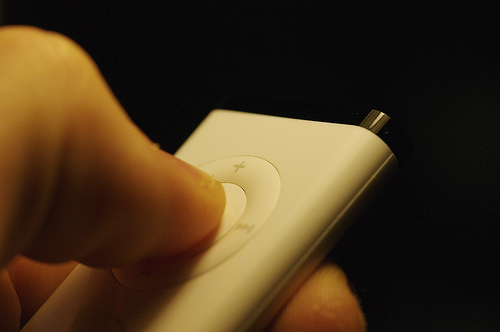We run our website the way we wished the whole internet worked: we provide high quality original content with no ads. We are funded solely by your direct support. Please consider supporting this project.
Reasons God Does Not Control Everything
First, the belief that God is all-powerful does not mean that God exercises all power. It only means that God is the ultimate source of all power. Fallen people may value the ability to control others and project this attribute onto God (Matthew 20:25-28). But the cross breaks all of our fallen assumptions about what God must be like. The cross reveals — and the rest of Scripture teaches — that God empowers others to act on their own, against his own wishes if they so choose. The cross reveals that God is so sovereign he doesn’t need to ensure he will always get his own way. There is, therefore, no reason to follow Augustine and others in maintaining that “the will of the omnipotent is always undefeated,” if this is taken to mean that each event in history reveals God’s omnipotent will. Earthly lords may aspire to an all-controlling form of lordship, but not the King of all kings and the Lord of all lords (1 Tim 6:15; Rev 17:14; Mk 10:42-45).
Second, there is no reason to accept the conclusion of certain Hellenistic philosophers, repeated in much of the church’s theological tradition, that a perfect being must be absolutely unchanging and impervious to outside influences. True, God is unchanging in terms of his perfect character (E.g. Malachi 3:6; Hebrews 1:13; James 1:17). But as the incarnation and crucifixion reveal, because God’s loving character is perfect, he can and does change in response to changing situations. Plato and many following him mistakenly thought that something can change only for the better or the worse. But in point of fact, people can change simply as an expression of who they are. Indeed, if their character is virtuous, they must be willing and able to change.
Possessing the ability to change is not a defect but a virtue. The inability to change is a defect. To illustrate, if a joyful person with a compassionate character enters a room in which a friend is grieving, he or she will immediately respond as a friend by adjusting his or her demeanor. People change in their response to others precisely because they are unchanging in their compassionate character. We would consider them cold or calloused if they didn’t. The change doesn’t make them better or worse. It just expresses the virtuous, unchanging character they possess.
A God who was never affected by anything outside of himself could not be perfectly loving and compassionate. If we believe God is unchanging in his perfect love, we must believe he perfectly changes in response to the changing situations of the people he loves. This is precisely what the incarnation and cross reveal about God. God is as perfect in his ability and willingness to change as he is in his unchanging character.
Similarly, there is no reason to conclude that a perfect being wouldn’t experience a “before” and “after.” There is nothing innately virtuous about being locked into an “eternal now.” To the contrary, it’s difficult to conceive of the personal, interacting, responsive God we find in the Bible limited in this fashion. And certainly, if all our thinking about God revolves around the person of Jesus Christ, the last thing we’d conclude about God is that he exists in an unchanging “eternal now.” Jesus Christ is God with us, a human in time who responds to our desperate fallen condition. As such, he incarnates God’s beautiful responsiveness and changeability we see throughout Scripture.
— Adapted from Is God to Blame?, pages 57–59
Category: General
Tags: Change, God, Open Theism, time
Related Reading

Theology Matters
DugDownDeep_Carnahan.mov from Covenant Life Church on Vimeo. We found this fun video over at David D. Flowers’ blog and loved it so much we wanted to share it with you here. Thanks David!

What is the significance of Hosea 8:5?
The Lord asks, “How long will they [Israel] be incapable of innocence?” The Lord’s continual striving with Israel regarding their lack of innocence suggests that this question was not merely rhetorical. If God knows the future to be eternally settled, however, he could not in earnest ask this (or any other) question about the future.…

What is the significance of Matthew 26:39?
Jesus threw himself on the ground and prayed, “My Father, if it is possible, let this cup pass from me; yet not what I want but what you want.” Scripture indicates that much about the life and death of Jesus Christ was foreordained and thus foreknown long before it came to pass. Given that this…

God Clearly Can, So Why Doesn’t He? (podcast)
Leah expects more from God. Should she? Greg confronts God’s inactivity and underperformance. Episode 510 http://traffic.libsyn.com/askgregboyd/Episode_0510.mp3

How do you respond to 1 Kings 13:2–3?
The Lord proclaims against the pagan alter of Jeroboam, “O altar, altar, thus says the Lord: ‘A son shall be born to the house of David, Josiah by name; and he shall sacrifice on you the priests of the high places who offer incense on you, and human bones shall be burned on you.’ He…

Greg Uncovers Flaws in Aquinas, and It Could Change Everything
In this episode Greg shares some intriguing insights about Aquinas and Aquinas’ concept of God.

